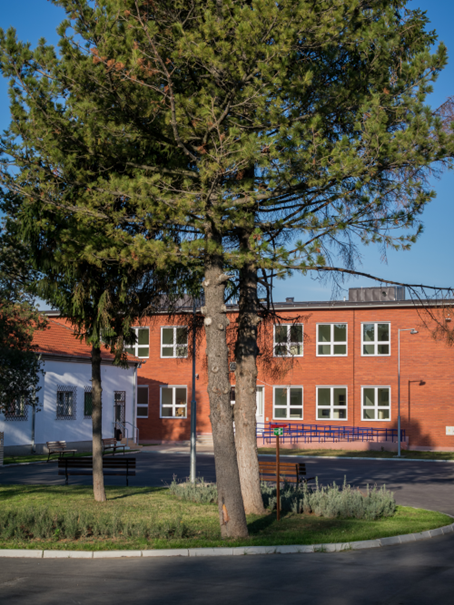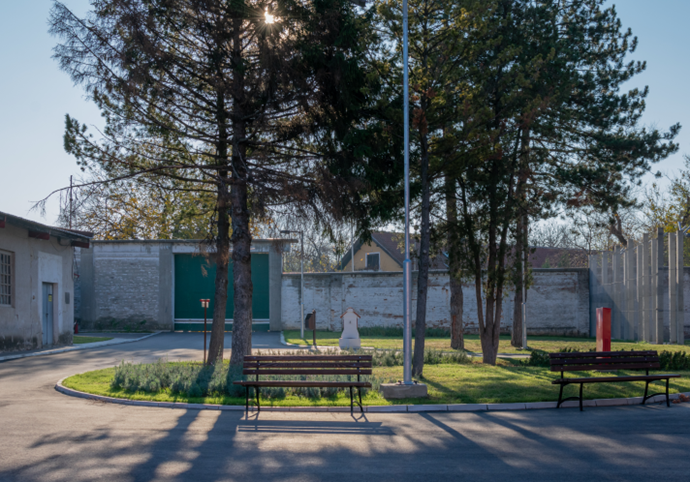The first international document that fully and comprehensively deals with the position of women in the system of execution of criminal sanctions, including the position of women in prisons, are the United Nations Rules for the Treatment of Women Prisoners and Non-custodial Measures for Women Offenders (the Bangkok Rules).
This document was adopted in 2010, while Thailand and its princess Bajrakitiyabha had important role in its development. Thailand financially supported the process of writing the document, so it was proposed to name the Rules after the capital of this Asian country – the Bangkok Rules.
The Bangkok Rules are not a replacement, but a supplement to the existing international and European rules on the treatment of prisoners. They define women’s rights in certain areas that the existing documents do not deal with or, on the other hand, deepen the existing rights. The rules themselves were conceived keeping in mind the real position of women in many countries in the world, so the three key areas that the document deals with are the following: (1) specific needs of women and how to respond to them, (2) prevention of abuse and support for women who have experienced victimization, and (3) protection of the rights of children (born in prison and staying with mothers in prison when national regulations allow).
The Bangkok Rules define the basic principles and rules related to the treatment of all women in institutions for the execution of institutional sanctions, including convicted and detained women, regardless of the legal basis for deprivation of liberty. All rules are based on the principle of non-discrimination, whereby it is stated that meeting the specific needs of women in prison will not be considered discriminatory because such an approach ensures the achievement of gender equality.

Photography 1: Penal-correctional institution for women in Požarevac. Author: Ana Batrićević. The photograph was made for the purpose of research about the greening of prison communities, the results of which were published in the book: Pavićević, O. Ilijić, Lj., & Batrićević, A. (2020). Susret društvenog i biološkog ozelenjavanje zatvorskih zajednica. Belgrade: Institute of Criminological and Sociological Research.
One of the first rules foresees that women should be accommodated in institutions that are not significantly far from their place of residence, which is essential to enable regular contact, especially with children. When admitting a convict to an institution for the execution of a prison sentence, it is necessary to pay special attention to her vulnerability, provide space for her to contact her family and relatives, provide legal assistance and necessary information in a language the woman understands. It is also pointed out that women will be allowed to contact persons outside the institution in order to take care of children, including a limited delay in the beginning of the execution of the sentence, if it is necessary and in the best interest of a child.
The Bangkok Rules pay special attention to the personal hygiene and health care of female convicts. Already upon admission, it is necessary to conduct a complete medical examination and identify the primary health needs of the woman. Special attention is focused on detecting the presence of sexually transmitted diseases or blood-borne diseases; then on mental health, especially on the existence of post-traumatic stress disorder and the risk of suicide and self-harm. In addition, special attention should be focused on identifying addiction to psychoactive substances and the experience of victimization by sexual or other forms of gender-based violence. Health examinations should be performed by women, except in emergency cases. The presence of prison staff during examinations should be an exception, and when they attend the examination, these should be women, and the examination should be conducted in a way to guarantee the privacy, confidentiality and dignity of the female convict. In order to meet the health needs of imprisoned women, the Bangkok Rules specifically emphasize the need to develop and implement individualized, gender-sensitive and comprehensive rehabilitation programs for women with mental problems, treatment, care and support programs for women with the HIV virus, programs for withdrawal from psychoactive substances and prevention of suicide and self-harm.
Keeping in mind the fact that most female convicts have a history of previous psychological, physical and sexual violence,[1] the Bangkok Rules contain a series of rules aimed at informing, assisting and supporting women who have experienced violence. For example, information about her right to initiate court proceedings, access to legal aid, access to specialized psychological help and counseling during her stay in prison, consultation with the female convict regarding the circle of persons who are allowed to visit her during imprisonment, etc. Through the application of these rules, the aim is to provide a safe space in the prison, where through appropriate forms of help and support, understanding and non-judgment, women will be empowered to overcome trauma and recover from the consequences of victimization.
Part of the rules relates to the issue of safety and discipline. This issue includes, for example, the search of female convicts (the search must be carried out with full respect for the dignity and personality of a woman, only female staff can conduct the search, insisting on the introduction of alternatives to body searches in the form of scanners, etc.), disciplinary punishment (which implies that mothers with children, pregnant women and nursing mothers must not be sent to solitary confinement, as well as banning contact with the family, especially children, cannot be a disciplinary measure) and the need to provide protection to women who experience violence during their stay in prison.

Photography 2: Penal-correctional institution for women in Požarevac. Author: Ana Batrićević. The photograph was made for the purpose of research about the greening of prison communities, the results of which were published in the book: Pavićević, O. Ilijić, Lj., & Batrićević, A. (2020). Susret društvenog i biološkog ozelenjavanje zatvorskih zajednica. Belgrade: Institute of Criminological and Sociological Research.
Separation from home, and physical and psychological separation from children and family is certainly the most severe psychological consequence of imprisonment for women, that is, the most severe form of prison deprivation, and women are most often the sole or primary guardian of children, often single mothers. That is why the Bangkok Rules insist on encouraging contact with the family, children, guardians or legal representatives of the children, and regular visits (especially visits by the spouse, or partner and/or children in the space intended for this purpose).
The Bangkok Rules are particularly devoted to the treatment of pregnant women, mothers with children and nursing mothers, minors and other particularly vulnerable categories of women in prison, such as foreign nationals and members of minority groups (ethnic or religious).
In order for the rules to be adequately and fully implemented in practice, the Bangkok Rules insist on regular training of employees, that is, on strengthening their capacity for dealing with special needs and demands of female convicts in terms of their position and treatment, social reintegration and maintenance of a safe and rehabilitative environment in prison. In addition, the need for the development of open prisons, halfway homes and community-based programs is highlighted, which should facilitate women’s release. Finally, in cooperation with probation and social protection services, the local community and civil society organizations, it is necessary to design and implement programs of preparation for release and post-penal assistance, which will also take into account the specific needs of women, which is essential for the prevention of recidivism.
Prof. dr Sanja Ćopić
[1] Nikolić-Ristanović, V. (2000). Od žrtve do zatvorenice – nasilje u porodici i kriminalitet žena. Beograd: Viktimološko društvo Srbije i Prometej-Beograd.
